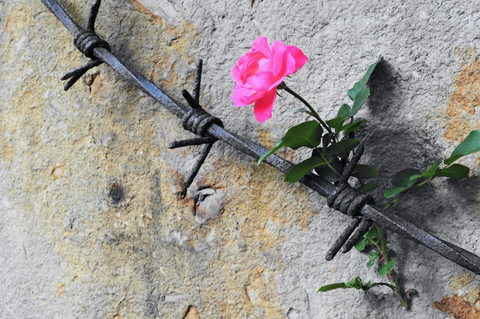
When is the truth truly free?
On June 9, 2013, news shot around the world that NSA sub-contractor Edward Snowden was the person who leaked information about the agency’s secret surveillance activities to the media.
In 2010, Bradley Manning released hundreds of thousands of classified documents and other materials to WikiLeaks.
In 2002, whistleblowers Sherron Watkins and Cynthia Cooper revealed the corruption running rampant at Enron and Worldcom.
In 1966, Peter Buxtun exposed the Tuskegee Syphilis Experiment.
The list goes on, and it’s long. History is replete with individuals honoring their conscience and their sense of ethics and integrity, often to the detriment of their careers, reputations, and sometimes their very lives.
But what’s important to note in most of these cases, and what is usually completely ignored by the reporting media, is the fact that the peacetime whistleblower is typically free to act. Otherwise, one assumes, their ability to make their disclosures in the first place would be significantly curtailed.
So the pattern that emerges is: freedom > discovery of wrongdoing > disclosure > retaliation in the form of firing, career/character destruction, or trial/conviction/imprisonment (or a cocktail of all three).
To be precise, this is the pattern we generally see in the U.S. or Europe, post war. Wartime or dictator-ruled societies instill a great enough degree of fear and control that whistleblowers are effectively crushed before the thought even forms in their minds.
Take the sociopolitical context in which my novella Verse in Arabic takes place. It’s 1946 in Spain, a few years after the end of the Spanish Civil War and already well into General Franco’s tyrannical reign. There is no freedom of speech here. No freedom of religion. No freedom of the press. No right to divorce or abortion, and certainly no women’s rights, gay rights, or any of the freedoms we are so used to in the U.S. Remember that brothers killed brothers in the war, national poets were executed in cold blood, and political dissidents were tortured. And those not of the Roman Catholic religion, namely Muslims, Jews, and Protestants, were not allowed to practice or promote their faith outside the walls of their places of worship.
Sounds like a great place to live, no?
Imagine then the painful circumstance in which the character of interest, a respected Spanish doctor accused and convicted of murdering the daughter of an apparently Muslim family in Madrid, finds himself when he receives information that would exonerate him of all wrongdoing—and he decides not to disclose it.
Why he decides this, is in fact one of the keys to the mystery of Verse in Arabic which I cannot reveal here (for I, as the author, am not free to do so!), but it lays out the painful conflict between the natural pursuit of freedom and the desire—for some the need—to do the right thing.
It’s a conflict that never plays out in a vacuum. How we value and exercise our freedoms, and how we think and act as individuals and communities, depends on the broader sociopolitical subtext upon which the society we live in is founded.
There isn’t much difference between Ed Snowden and the doctor in Verse in Arabic. Both acted upon their firm personal convictions of ethics and integrity. Both suffered as a result of their actions—the doctor spent 21 years in prison, and Snowden faces a potentially similar prospect.
The difference lies in the impact they had on their respective worlds: the doctor’s moral act only affected his life, whereas Snowden’s decision is already impacting the worldview of millions of people.
This is why the freedom to think, and to act, is so critical in a society, regardless of the political, economic, or other measures that attempt to restrain this freedom. The truth will forever seek to be free.







